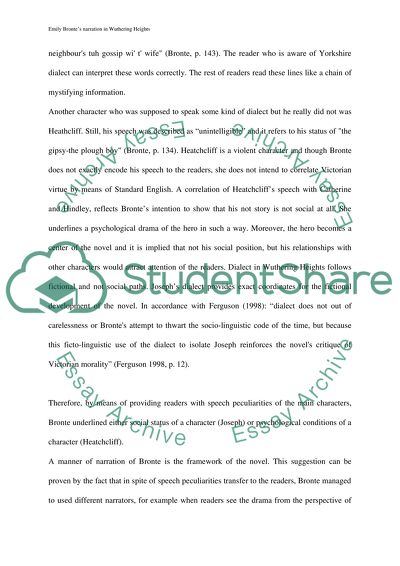Cite this document
(“Emily Brontes Narration in Wuthering Heights Essay”, n.d.)
Retrieved from https://studentshare.org/literature/1577751-emily-brontes-narration-in-wuthering-heights
Retrieved from https://studentshare.org/literature/1577751-emily-brontes-narration-in-wuthering-heights
(Emily Brontes Narration in Wuthering Heights Essay)
https://studentshare.org/literature/1577751-emily-brontes-narration-in-wuthering-heights.
https://studentshare.org/literature/1577751-emily-brontes-narration-in-wuthering-heights.
“Emily Brontes Narration in Wuthering Heights Essay”, n.d. https://studentshare.org/literature/1577751-emily-brontes-narration-in-wuthering-heights.


